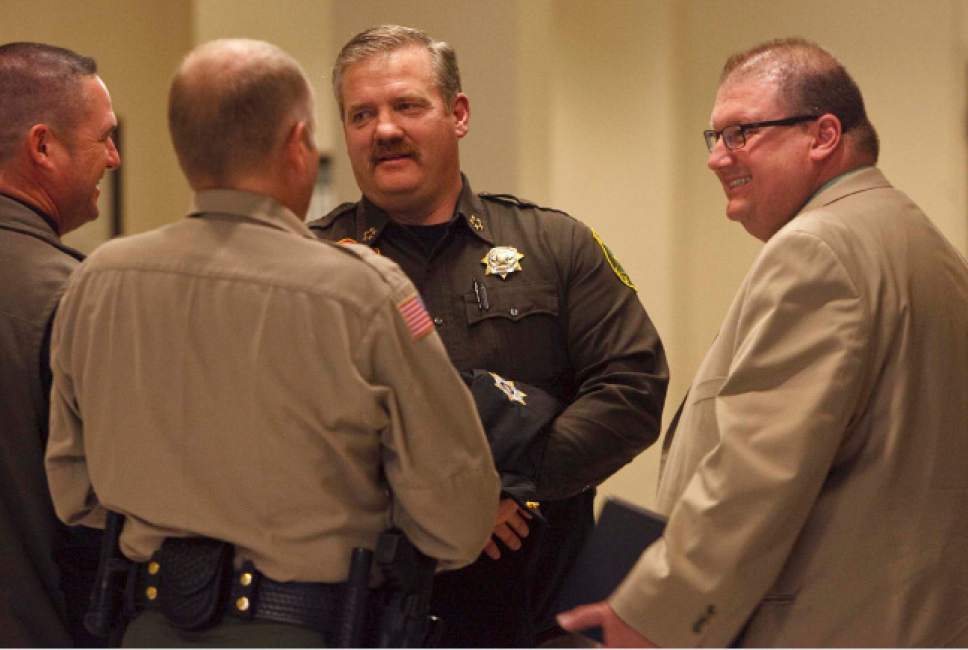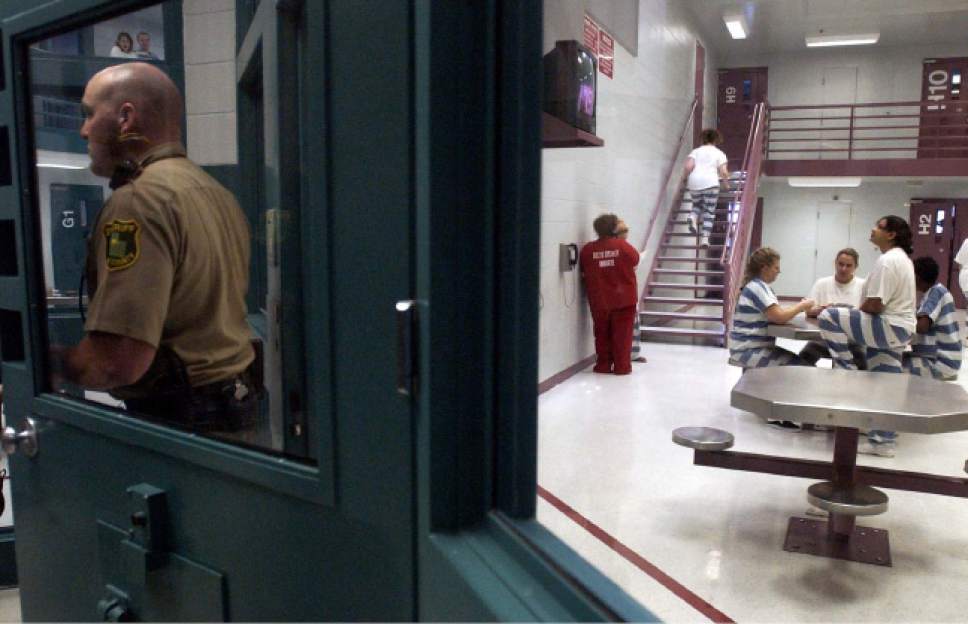This is an archived article that was published on sltrib.com in 2017, and information in the article may be outdated. It is provided only for personal research purposes and may not be reprinted.
Suicide is a complex statewide problem that spreads into Utah's county jails, leading to a public misperception that jailers aren't preventing avoidable deaths, a county sheriff's group said this week in response to attention on hundreds of in-custody deaths.
A group representing the state's sheriffs who oversee county jails is pushing back against calls by Utah-based civil rights groups for more oversight and improved mental and medical health policies by saying they already adhere to a lengthy set of standards.
The Utah Sheriffs Association jail operations director said in a six-page response to news articles and backlash this week that it's not possible to prevent every inmate death, and he defended the standards guiding the state's 26 county jails.
"Do suicides occur in jails? Yes, they do," wrote Gary DeLand, the former head of Utah's Department of Corrections who now works with the sheriffs' group. "Unfortunately, regardless of how well administered a jail is and no matter how well supervised inmates may be, there can be no absolute guarantee that every suicide can be prevented."
More than half the known 56 deaths in Utah jails between 2014 and this February — at least 31 — were suicides, according to data obtained from the counties by The Tribune that was cross-referenced with information the Disability Law Center obtained from the state Medical Examiner.
After reviewing the data, the Disability Law Center, a Salt Lake City-based group that is studying mental-health care in county jails, is calling for improved state medical and mental health policies that it hopes will help inmates and prevent more deaths.
"What we'd like to see is some statewide standard," said Aaron Kinikini, legal director at the Disability Law Center. "If you go to [jail in] county A or county B [there should be] some modicum of standards for mental health."
In an interview this week, DeLand said jails are doing the best they can, noting they often have little background on an inmate's medical history when they come to jail.
Inmates also are screened either by medical staff, if a jail has them, or by correctional officers when they're booked. DeLand called the process imperfect. When inmates indicate they're suicidal, DeLand said, they're referred to medical or mental health professionals if a jail has them. But, he said, it's easy for inmates to get around the screening process.
"There's a silly story where people who are suicidal want you to catch them," DeLand said. "It's not hard to get past that stuff."
In his written statement, DeLand pointed to Utah's high rate of suicides across its population, including school-age children, in arguing that what's happening in jails reflect a broader problem. The rate of suicides in Utah's jails "is not indicative of a general indifference to preventing inmate suicides."
Before Troy Bradshaw was booked into the Beaver County jail in June 2014, he was taken to a local hospital for medical treatment. Attorneys for Bradshaw's family say hospital staff told authorities Bradshaw had mental-health issues and needed to continue taking medication.
On June 15, two days after his arrest, Bradshaw was found hanging in his cell. The family asserts in a lawsuit that the policies and procedures followed by jailers weren't sufficient to prevent the 37-year-old man's death.
The jail's "policies and procedures related to inmates with mental-health issues or conditions similar to that of Bradshaw place inmates at risk for death by suicide, such as the situation which resulted in the death of Bradshaw," according to the lawsuit.
The family says the jail doesn't have enough guards monitoring suicidal or depressed inmates.
Beaver County Sheriff Cameron Noel, who is president of the Utah Sheriffs Association, referred all questions about Bradshaw's death to the county's private attorney in the case.
The county has denied nearly every assertion in the lawsuit.
The ACLU called for independent inspections of all county jails in Utah, which are currently inspected by the sheriffs association. "We believe that the issue of deaths in government custody is a very serious one, and will continue to explore ways to improve conditions in Utah jails," the ACLU-Utah said in a statement. "It's a complex and multifaceted issue, which includes but is not limited to suicide."
DeLand, who said he wrote the state's jail standards, also said he oversees the inspections for the Utah Sheriffs Association.
In his statement, DeLand denied independent inspections would prevent deaths.
"The ACLU wants yet another level of inspections?" he asked. "Does one more entity inspecting any Utah jail actually prevent an inmate" acting on suicidal tendencies?





